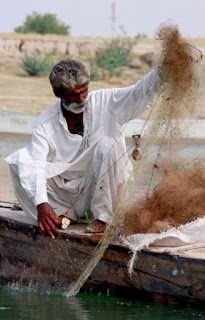Partner Institutes
| |
| University of Sussex | Quaid-i-Azam University |
Through the INSPIRE partnership, there will be
an analysis of all the remittances channelled towards supporting and improving
educational institutions and resources in development contexts; how ‘migrant
children’s’ education might be affected by their movement between places; and
how immigration policy may impact on potential migrants’ education.
 The starting
premise is that whilst international migration is generally associated with
wide reaching social and cultural transformations, the direction of change in
educational practices is unpredictable, being contingent not only on social,
religious-cultural and political circumstances of migrant communities, but also
on the specific life trajectories of migrant households.
The starting
premise is that whilst international migration is generally associated with
wide reaching social and cultural transformations, the direction of change in
educational practices is unpredictable, being contingent not only on social,
religious-cultural and political circumstances of migrant communities, but also
on the specific life trajectories of migrant households.
The aim is to
analyse the empirical data on the relationship between education and migration
in each location, understand the effects of migration on social and economic
change in sending contexts and specifically, the consequences for education and
lastly to evaluate the way investments in education by migrants and prospective
migrants influence migration and development outcomes.
 This project will
provide an opportunity to expand the existing financial and administrative
infrastructure in the department of anthropology at QAU. It will also promote
academic linkages between the two institutions and develop long-term
collaboration between both the institutions for future mutual research
activities.
This project will
provide an opportunity to expand the existing financial and administrative
infrastructure in the department of anthropology at QAU. It will also promote
academic linkages between the two institutions and develop long-term
collaboration between both the institutions for future mutual research
activities.
Lessons Learnt:
- During the field work it was felt that the migrants are very much reluctant to provide information about their income/remittances. It was also noted that the money which they receive is mainly utilised either on house construction or on the purchase of land/residential plots.
- The remittance has also created problems with in the family due to which the family system is breaking-up from joint to nuclear. The parents also spend their money on the education of the children and send them to good quality education institutions, but due to the father’s absence, the mothers are losing the control over their children.
Challenges Faced:
- During field work in District Kotli, AJK, it was difficult to approach the migrant houses because they were located in small hamlets much away from each other. The female researchers faced much difficulty to reach the respondents’ houses.
- During the initial days of the field work, the researchers were not well received by the respondents as they thought that they have come from Govt. and belong to income tax department and might create problems for them. However, with the passage of time and with the help of key informants, the researchers were able to develop meaningful rapport with the community members.
Impact of
the Project:
- This INSPIRE partnership will provide practical insight for policymakers in the field of education on how to respond to the consequences of migration as a means for attaining educational goals, and as a strategy to support future migration plans.
Key Contacts:
Dr Filippo Osella, University of Sussex
f.osella@sussex.ac.uk, www.sussex.ac.uk
Dr. Hafeez-ur-Rehman, Quaid-i-Azam University
Hafeez@qau.edu.pk, www.qau.edu.pk


















